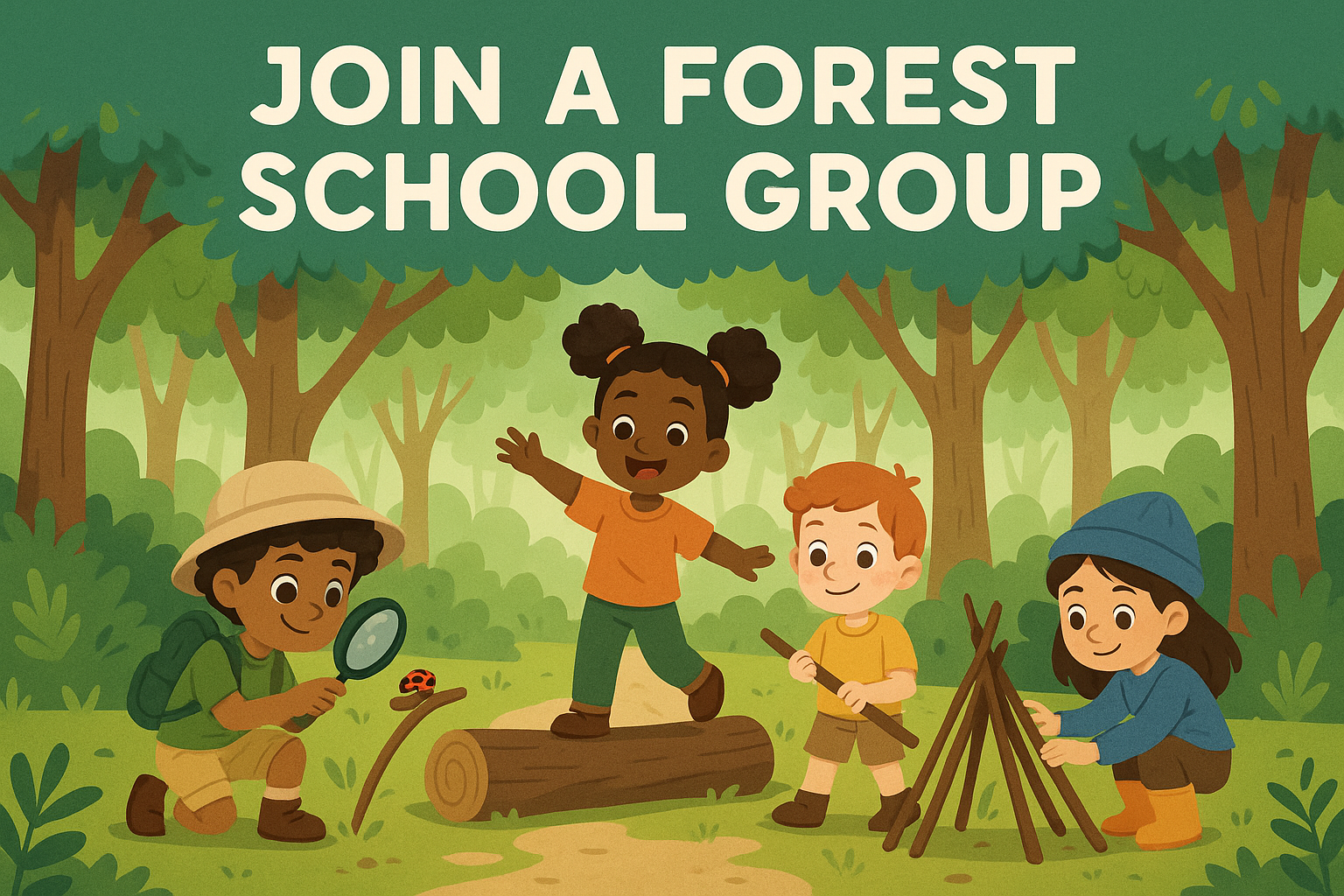Forest school is a child-led, outdoor learning experience that focuses on exploration, resilience and connection with the natural world.
Sessions are usually held in woodlands or green spaces and involve everything from den building and bug hunting to tool use and campfire cooking — all guided by trained forest school leaders.
Children are encouraged to take healthy risks, work together, and learn through play. The relaxed, non-pressured environment is especially supportive for building self-esteem, emotional regulation and social skills.
Why It’s Great
- Confidence & Independence – Children learn at their own pace while trying new things in a supportive setting.
- Connection to Nature – Encourages curiosity, respect for wildlife, and seasonal awareness.
- Resilience & Problem-Solving – Builds perseverance through practical, hands-on tasks.
- Physical & Emotional Wellbeing – Regular time outdoors supports movement, mindfulness and self-regulation.
How to Get Started
- Search for forest school groups in your area — many are term-time sessions, weekend clubs, or holiday programmes.
- Sessions are typically run by Level 3-trained Forest School Leaders with outdoor first aid certification.
- Dress for the weather — waterproofs and layers are essential year-round.
- Some sessions are drop-off; others welcome parents and carers to stay and take part.
Variations
- Preschool Forest Play: Shorter, play-led sessions for toddlers and early years.
- Holiday Bushcraft Camps: Longer, adventure-based programmes for older children.
- Family Forest School: Some groups offer weekend sessions where the whole family can join in.
Safety Tips
- Check that the forest school is fully insured and run by trained leaders with up-to-date first aid and safeguarding credentials.
- Risk assessments should be in place for tools, fire and nature-based activities.
- Ensure children are dressed appropriately for the weather and terrain — warmth and comfort go a long way!


Leave a Reply